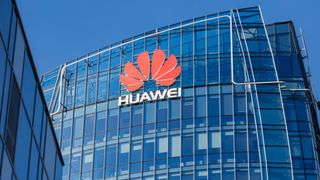Huawei’s smartphone Android OS replacement will launch in June

Huawei’s home-grown operating system – code-named HongMeng – set to replace Android once Google’s ban comes into full effect, will be commercially rolled out next month, a Middle East head for the firm revealed exclusively to TechRadar Middle East.
On May 20, Google announced that it would partially cut off Huawei devices from its Android operating system but was given an extension till August 19 by the US White House.
Other tech companies also followed suit, including Intel, Qualcomm, Micron, ARM, etc. Even the Bluetooth, SD and WiFi alliances also restricted Huawei.
“Huawei knew this was coming and was preparing. The OS was ready in January 2018 and this was our ‘Plan B’.
“We did not want to bring the OS to the market as we had a strong relationship with Google and others and did not want to ruin the relationship. Now, we are rolling it out next month” said Alaa Elshimy, Managing Director and Vice President of Huawei Enterprise Business Group Middle East.
- Huawei ban: the global fallout explained
While the ban will come into place towards the end of August, Huawei is already prepped with its new operating system arriving two months earlier, in June.
The OS, internally known as HongMeng, is expected to be compatible with mobile phones, computers, tablets, TVs, connected cars, smartwatch, smart wearables and others.
All applications that work with Android are expected to work with this new OS without any need for further customization, Elshimy claims, adding that users will be able to download apps from the Huawei AppGallery.
Whether all apps available via Google’s Play Store will also feature in Huawei’s store remains to be seen, as we’ve seen numerous operating systems before (Windows Phone, BlackBerry OS etc) fail to match the volume of Google’s and Apple’s app store offerings.
If the HongMeng OS misses out on key apps, it could be difficult for Huawei to convince users to switch to handsets running the software.
Huawei is self reliant
“The US sanctions won’t affect the company’s operating system and the chipsets in any way as we are self-reliant in many aspects.
“We have all the chipsets expect the Intel chips for PCs and servers. Every single storage player in the market is using Qualcomm chipset and we are the only one using our own chipset. That is why we can go at the speed we want” Elshimy said.
Moreover, he said that Huawei has its own ARM-based processor to replace Intel chips and will be launching its own database similar to Oracle soon.
According to industry reports, Huawei buys more than $11 billion in goods and services from US companies each year. However, the Chinese player will now have to get government approval to buy parts or technology from US suppliers.
What about WiFi?
When asked about how Huawei phones are going to handle WiFi and Bluetooth issues, he said that WiFi is an international standard and Huawei is one of the biggest contributors to the WiFi Alliance.
“In my view, the biggest loser will be the alliance if they keep us out of the alliance” Elshimy explained. “From an industry point of view, it is a standard and it is good if you meet the standard [but you] don’t need to be part of the alliance. The same answer applies to Bluetooth and SD cases.”.
However, he said that keeping Huawei out of the alliance is just putting pressure on Huawei as part of the trade war.
Ren Zhengfei, Huawei’s CEO, recently stated that no one can catch up with Huawei in the next two or three years and being a private company gives it the advantage because it can make large investments more easily.
[“source=techradar”]
